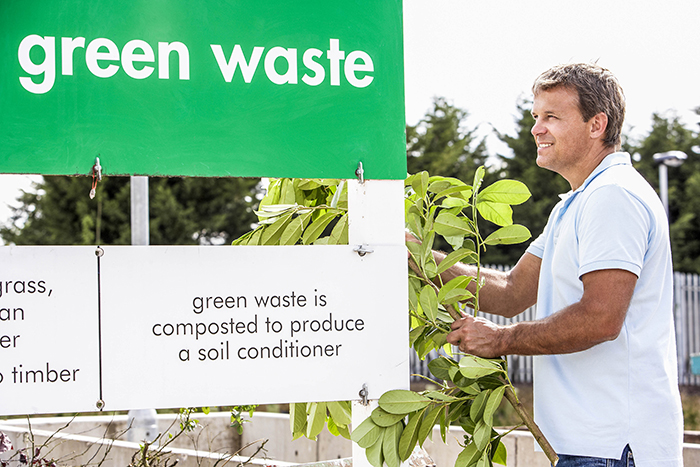
By Pam Wright
Local Journalism Initiative Reporter
Chatham-Kent is about to embark on a new-to-the-municipality organic waste diversion program.
The three-pronged approach includes a backyard composter program; a standardized system of curbside leaf and yard waste collection and a pilot food waste digester program at the Harwich transfer depot.
Council approved the project following a detailed presentation by public works director Ryan Brown, based on a report from Huda Oda, C-K’s manager of waste management.
According to Brown, the program will be developed in three stages. The backyard composter project will commence in 2026 and interested residents will be able to buy the devices from C-K for $20.
A standardized curbside yard waste program will follow in 2027 – similar to what’s currently underway in Thamesville and Ridgetown. The food waste digester program will be added in 2028.
All told, capital costs for organic waste diversion are $4.27 million, plus an estimated $2.2 million in operating costs. These expenses will be funded through the 2024-multi-year budget and various reserves, with a portion of the costs coming from area-rated taxes. Only those who receive the service will pay the levy.
Mandated by the province, Ontario municipalities are required to divert at least 50 per cent of their organic waste by 2025. Chatham-Kent has been working on the issue for two years and has undertaken a comprehensive public engagement process. Chatham-Kent is producing 36,200 tonnes of waste annually, of which 48 per cent is organic waste.
Based on recent garbage audits, urban residents with curbside pickup are diverting 31 per cent of their organic waste from landfills, while rural households are diverting 39 per cent.
In response to a question from Coun. Alysson Storey about whether it would be more cost effective for C-K to contract the program out, Brown said the robust program needs a dedicated staff.
“Our recommendation before you is to run this program internally,” Brown replied.
Council also learned there are few companies who supply the service.
Going forward, Chatham-Kent will hire a contract waste project manager April 1.
In 2027, seven permanent waste collector/equipment operator positions will be hired, as well as a dispatcher and a supervisor. The municipality will also buy four collection trucks and retrofit an existing building to accommodate the services. Two new weigh scales will be added.
In light of tariff turbulence, Storey said some of her concerns lie with purchasing vehicles and services from the United States.
In his comments, South Kent Coun. Anthony Ceccacci expressed dismay that Chatham-Kent has to foot the bill for yet another downloaded cost from the province. The organic waste diversion program is double what the municipality had budgeted for, prompting Ceccacci to put forward an amendment asking the Ontario government for full funding.
“It’s an opportunity to advocate and ask,” Ceccacci said of the motion, but he acknowledged the request was unlikely to go anywhere.
Ceccacci pointed out Ontario’s landfills have only nine to 10 years of capacity left, noting around 30 per cent of the province’s garbage is presently trucked to Michigan. This was confirmed by Oda.
“I guess the concern is that we have to do our part, to do the best we can,” Ceccacci said, adding that the current tariff problems between the U.S. and Canada elevate concerns about mounting costs and the threat that the U.S. may refuse to accept the garbage.
Brown said buy-in support from the community is critical to the project’s success.
“A lot of it is about public engagement and community communication to make sure people understand this is what we’re offering and how best to use it,” Brown said, noting all of the approved programs include money for public education.






